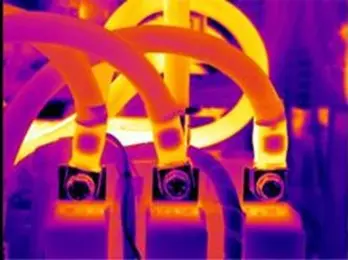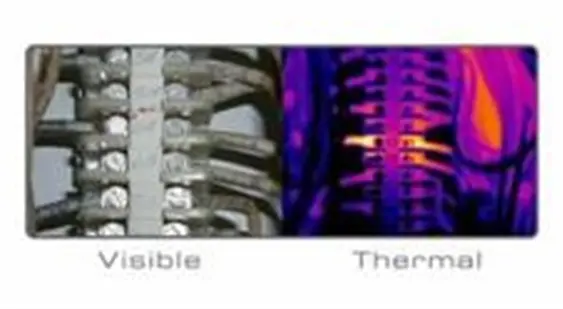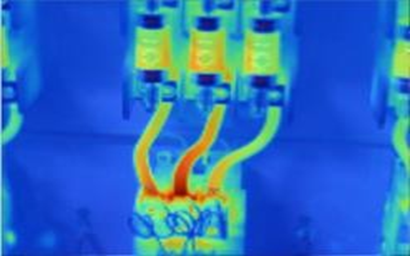يؤكد فحص الطاقة الكهربائية ذات الجهد المنخفض على الأهمية الحاسمة للفحص والاختبار الدوريين للمباني السكنية والتجارية لضمان سلامة وامتثال التركيبات الكهربائية. ويسلط الضوء على الحاجة إلى تحديد والإبلاغ عن أي عوامل قد تعرض السلامة للخطر، والحماية من الصدمات الكهربائية والحروق وتلف الممتلكات، والتأكيد على الالتزام بالمعايير مثل BS 7671 وIEC 60364. كما يحدد المستند أيضًا الإجراءات التفصيلية للفحوصات البصرية والشاملة، بما في ذلك استخدام التصوير الحراري ومعدات الاختبار المختلفة لتقييم حالة التركيبات الكهربائية.
Introduction
- The main purpose of periodic inspection and testing is to detect so far as is reasonably practicable and to report on, any factors impairing or likely to impair the safety of an electrical installation.
- Safety of persons against the effects of electric shock and burns.
- Protection against damage to property by fire and heat arising from an installation defect
- Confirmation that the installation is not damaged or deteriorated to impair safety
- Identification of non-compliance with the BS 7671, or installation defects, which may give rise to danger.
Note: Electrical installations in poor condition present risks of fire as well as electric shock.
The procedures for periodic inspection and testing differ in respect from those for the initial verification of new installation works, this is because the subject of an electrical installation is conditioned usually for installation and final commissioning that has been energized according to applying the IECs and BSs standards.
In the periodic inspection and testing, there are other standards to apply, the periodic inspection and testing indicate of use that may be created by persons due to poor use of electrical installations and equipment during daily usage.
There are a lot of reasons to apply the periodic inspection as:
- Safety
- Corrosion
- Age
- Damage and deterioration
- Excessive loading
- External influences.
- Suitability (taking account of any changes in use or facilities extensions etc.).
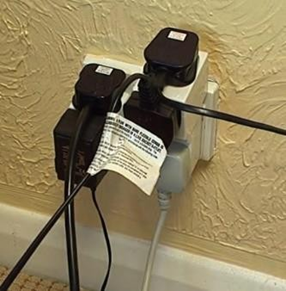
Electrical standards
The Periodic electrical inspection must be done according to many standards to be sure that the test results are acceptable and within the limits, such as using the below standards:
BS 7671
Requirements for Electrical Installations. IET Wiring Regulations, for electrical installation and the safety of electric wiring in domestic, commercial, industrial, and other buildings.
IEC 60364 series
gives the rules for the design, erection, and verification of electrical installations. The rules are intended to provide for the safety of persons, livestock and property against dangers and damage which may arise in the reasonable use of electrical installations and to provide for the proper functioning of those installations.
IEC 61557, BS EN 61557
specifies the general requirements for measuring and monitoring equipment for testing the electrical safety in low voltage distribution systems with nominal voltages up to 1 000 V a.c. and 1 500 V d.c.
IEC 61010-1, BS EN 61010-1
Safety requirements for electrical equipment s for measurement, control, and laboratory use
BS EN 60898
Circuit breaker standards for overcurrent protection in homes. Electrical engineering > Fuses and protection devices.
Specification for circuit-breakers for overcurrent protection for household and similar installations. Electrical engineering > Electrical accessories > Fuses and other overcurrent protection devices.
BS EN 60947
Outlines safety and performance criteria for low-voltage switchgear and control gear.
This is the definitive international standard for control gear components. It gives general rules and common safety requirements for low-voltage switchgear and control gear and provides the essential constructional, performance, and test requirements to enable the design, evaluation, and safe operation of low-voltage switchgear.
BS EN 61008
Outlines safety and performance criteria for low-voltage switchgear and control gear.
Specification for residual current operated circuit-breakers without integral overcurrent protection for household and similar uses (RCCBs).
BS EN 61009
Outlines safety and performance criteria for low-voltage switchgear and control gear.
Residual current-operated circuit breaker with integral overcurrent protection.
Electrical standards reference
Procedure for electrical inspection
The inspection activities will be including:
Visual and closed inspection
This type of electrical inspection will make the visual inspection for MDBs, SDBs, and according to BS 7671 and other electrical standards as in the section above to cover these activities including the recording of the technical condition and thermal inspection images for the DBs, SDBs, etc. We can use a thermal image camera to check the overhead cable during electrical overload if any and at the same time, we can check for any bad or loose wire connections. Below thermal images below show different cases of overheating.
This photo shows the bad or loss of the wire connection
Detailed inspection
In this type of electrical inspection will check in details all the testing readings and recording. All testing recording values must be acceptable according the standards and within the limits.
Note: In 2015, there was a company named (amtech) make a test report as in the attach, in this report the company tested only the value of Zs, so, after six years, need to test the value for Ze and Zs beside other tests values. The attach test report as a sample and will add other testing values for line loos connections (Ring Final Circuit Testing) and earthing system test values and etc including the Ipf (prospective fault current).
For TN-S earthing system, The maximum value of Ze =0.8 ohm
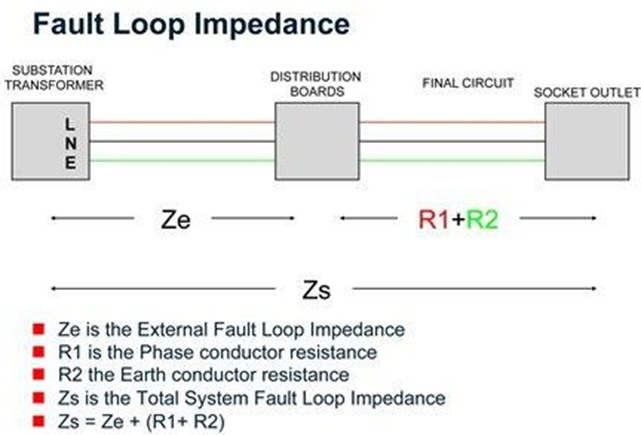
This test will satisfy a lot of safety requirements.
Elevate your living space
The fire started while the electrical circuit breakers not tripping
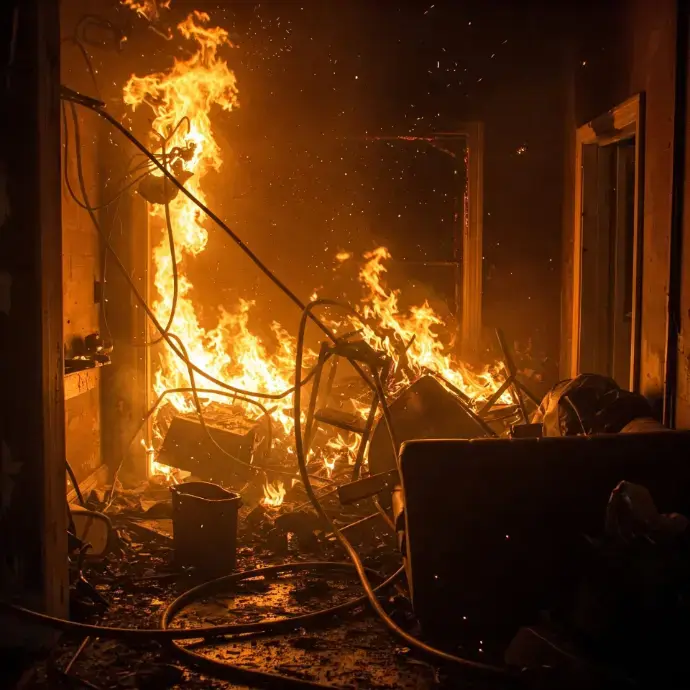
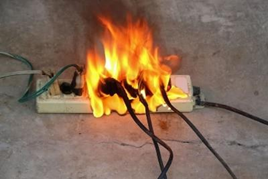
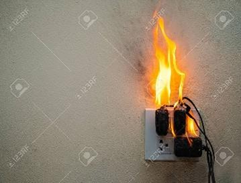
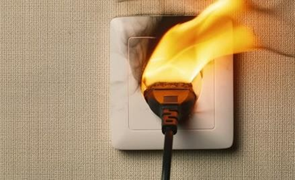
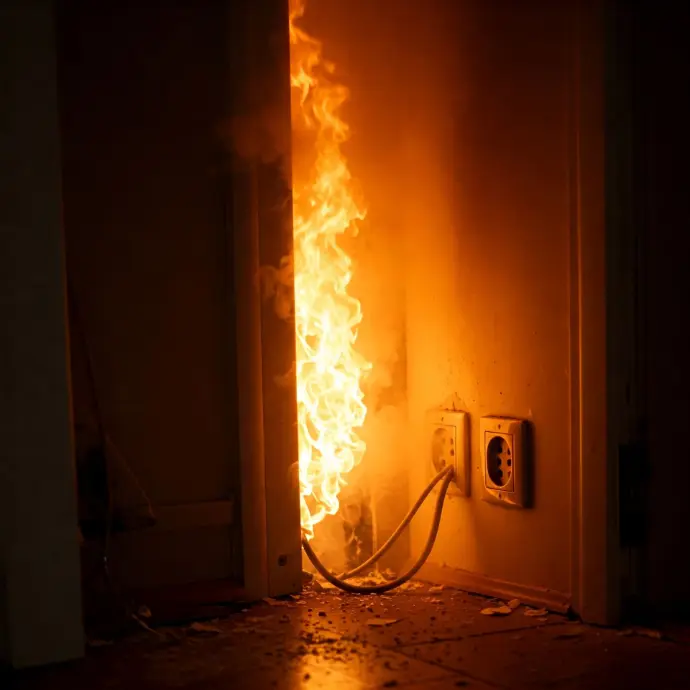
Examples of Electrical Test Equipment
Infrared Camera
Fluke Ti400, FLIR E95, or Alternative
Loop impedance test
Fluke 1653B, Kewtech KT63, or Alternative
Clamp meter
Fluke 376, or Alternative
Earth Clamp ground tester
Fluke 1630, or Alternative
Electrical Hand Tools
rechargeable drill machine
Note: all testing devices must have a valid calibration certification.
References
• BS Standards.
